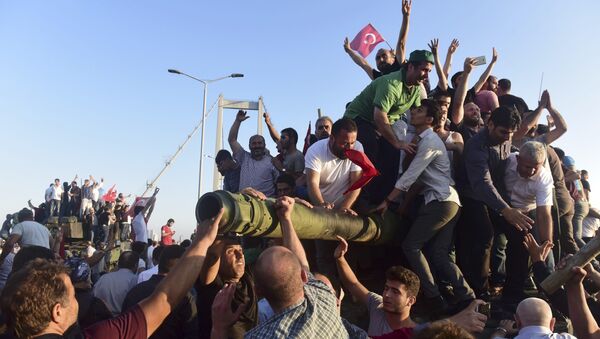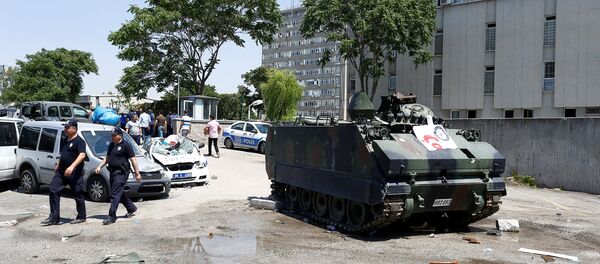"Turkey is no longer the same country as it was before the coup. Although the democratic[ally] elected leader has prevailed, Turkey is a deeply divided country. Erdogan must seek cooperation and consensus inside Turkey. If he does not do that then Turkey’s democratic institutions and sovereignty will be in danger," Takis Hadjigeorgiou said.
Hadjigeorgiou said that such division always leads to crises similar to what Turkey is currently facing.
"Without any doubt a sense of civil unrest/war — see the Kurdish problem — will continue to afflict the country and without any doubt the Erdogan era is, one way or another, coming to an end," he said.
Following the coup attempt, the Erdogan government rounded up some 3,000 military personnel and another 3,000 judges and prosecutors suspected of involvement in the plot. Erdogan also said that capital punishment could be reinstated in the country.
The rush with which the perpetrators were imprisoned sparked doubts as to whether the coup was real or fabricated so that Erdogan could gain more support and consolidate power.
The attempted coup in Turkey underlines the lack of stability in the country and raises even more doubts about Ankara’s capacity to be a reliable partner in the international fight against Daesh, Hadjigeorgiou added.
"A country without stability and without fully functioning democratic institutions raises doubts and concerns as to its capacity to be a viable partner against IS [Daesh]," Takis Hadjigeorgiou said.
He stressed that Turkey’s commitment to fight Daesh has already been put in doubt, particularly after prominent Turkish journalist Can Dundar revealed in the Cumhuriyet newspaper that Turkey's secret services had sent arms to Islamist rebels in Syria.
Ankara has been repeatedly accused by Damascus of sponsoring Daesh, which is outlawed in many countries, including Russia.




